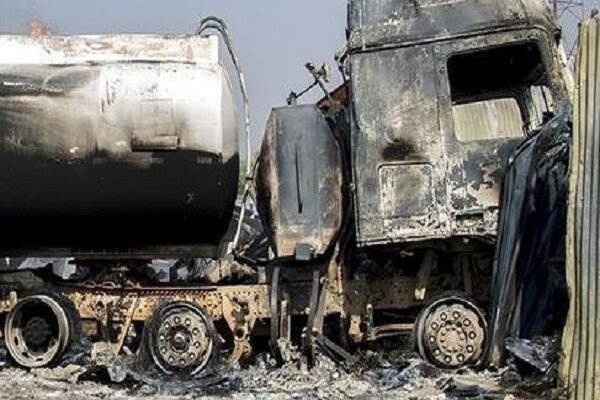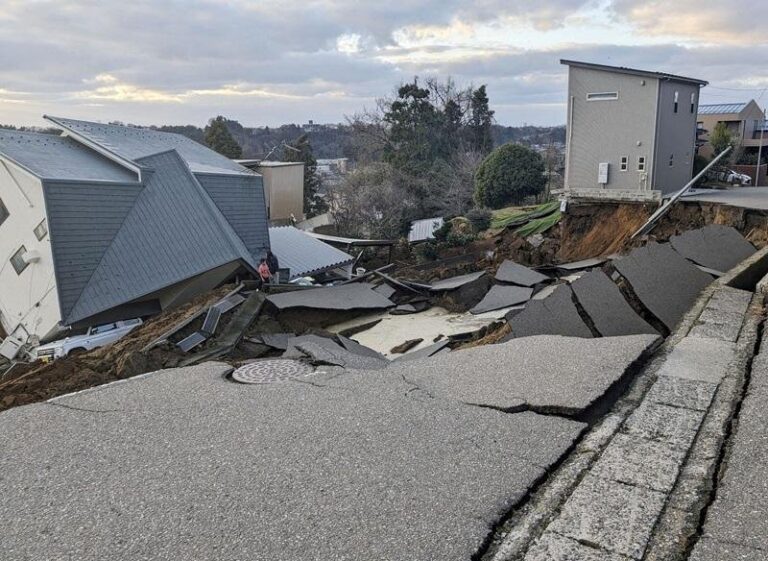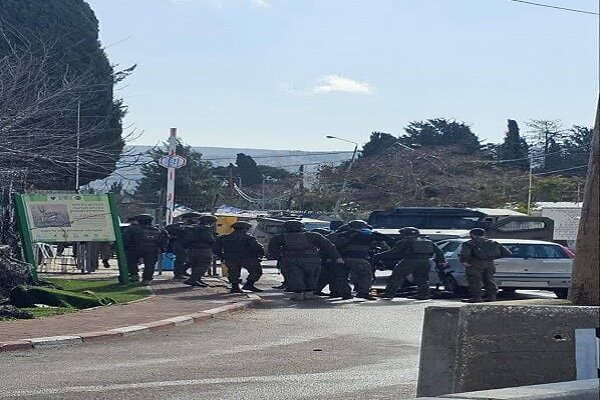Massive Fuel Tanker Explosion Rocks Northeastern Nigeria: Eyewitness Accounts and Aftermath
The recent fire incident in Yola, the capital of Adamawa, has raised significant concerns regarding safety and emergency response in Nigeria. This tragic event, which has already claimed multiple lives, highlights the pressing need for better fire safety regulations and public awareness.
According to reports, the road leading into Yola was blocked due to the fire incident, which required intervention from local and federal fire services. Both the Adamawa State Fire Service and the Federal Fire Service worked tirelessly to contain the blaze amidst the chaos. The State Police spokesperson, Suleiman Nguroje, confirmed the occurrence of the incident and stated that an investigation has commenced to assess the damage and the circumstances that led to this unfortunate event.
While Nguroje reported that there were no confirmed fatalities, eyewitness accounts contradict this claim, stating that at least 10 individuals lost their lives in the fire. This incident marks yet another tragic chapter in a series of explosions that have plagued Nigeria since the start of the year.
Recent Explosions in Nigeria
This incident is notably the fourth explosion reported in Nigeria within a short span of time. Here are the details of the other explosions that have occurred:
- January 25: A petrol-laden tanker exploded along the Enugu-Onitsha Expressway, resulting in the deaths of at least 11 people.
- January 18: In Niger State, a tragic incident occurred when individuals attempted to scoop fuel from a crashed oil tanker, leading to an explosion that killed 98 people and injured 55 others.
- January 5: A fuel tanker lost control and burst into flames in Delta State, claiming the lives of 5 individuals.
These incidents raise serious questions about the safety measures in place for handling fuel and the responsibilities of those involved in the transport and sale of flammable materials. With the increasing number of such tragic events, it is imperative for authorities to review and enhance safety protocols to prevent future occurrences.
The Call for Improved Safety Measures
In light of these recent tragedies, it is crucial for both local and federal governments to take immediate action to improve fire safety regulations. Here are several recommendations that could help mitigate the risks associated with fuel transportation and storage:
- Enhanced Training: Provide comprehensive training for individuals handling hazardous materials to ensure they are equipped to manage potential emergencies effectively.
- Public Awareness Campaigns: Launch campaigns to educate the public about the dangers of fuel handling and the importance of reporting unsafe practices.
- Regular Inspections: Implement routine inspections of fuel storage facilities and transport vehicles to ensure compliance with safety standards.
- Emergency Response Planning: Develop and rehearse emergency response plans to ensure that fire services can act swiftly and efficiently in the event of a fire or explosion.
The loss of life and property due to these incidents is devastating, and it is essential that both the government and the community take proactive steps to address these issues. The safety of citizens should be a paramount concern, and measures must be put in place to prevent further tragedies.
Conclusion
The recent fire incident in Yola serves as a stark reminder of the dangers posed by fuel-related incidents in Nigeria. With multiple explosions occurring in just a few short weeks, the need for improved safety measures has never been more urgent. As investigations continue and the community grapples with the aftermath of this tragedy, it is essential for authorities to prioritize the implementation of effective safety protocols to protect lives and prevent future disasters.
Only through collective effort and commitment to safety can we hope to reduce the risks associated with fuel handling and ensure a safer environment for all.






